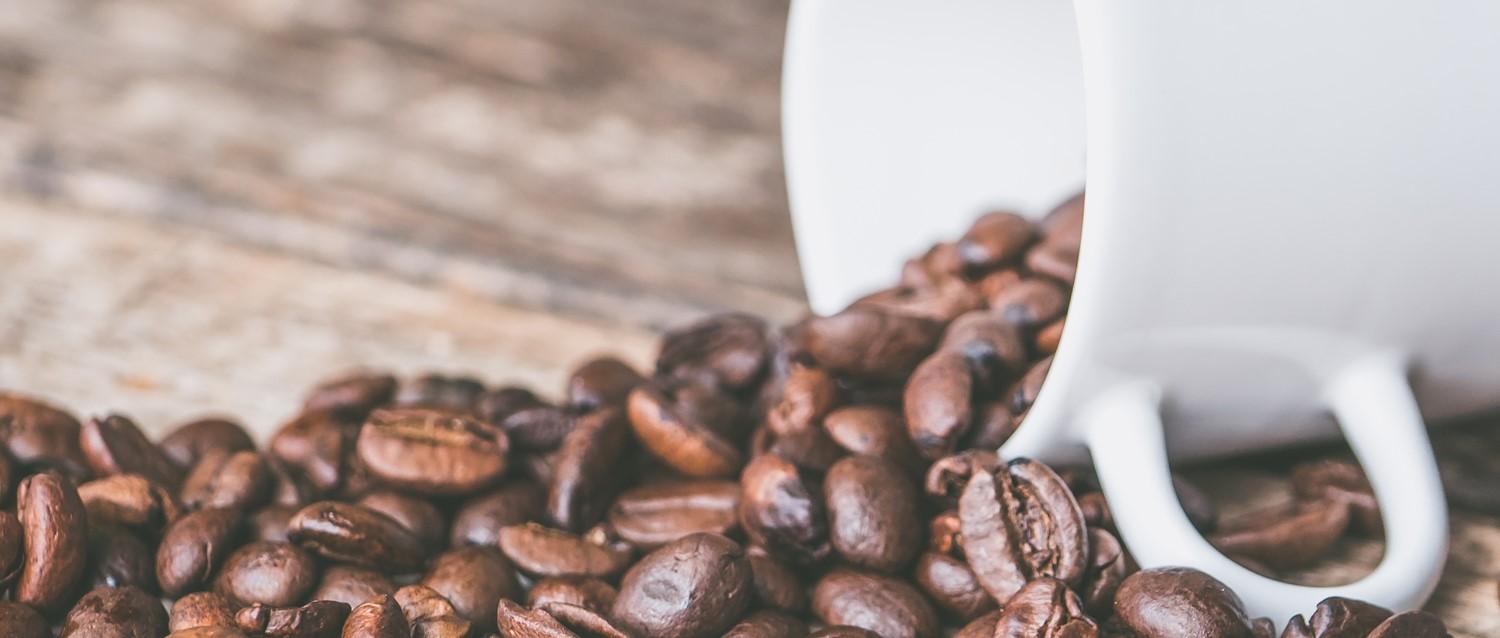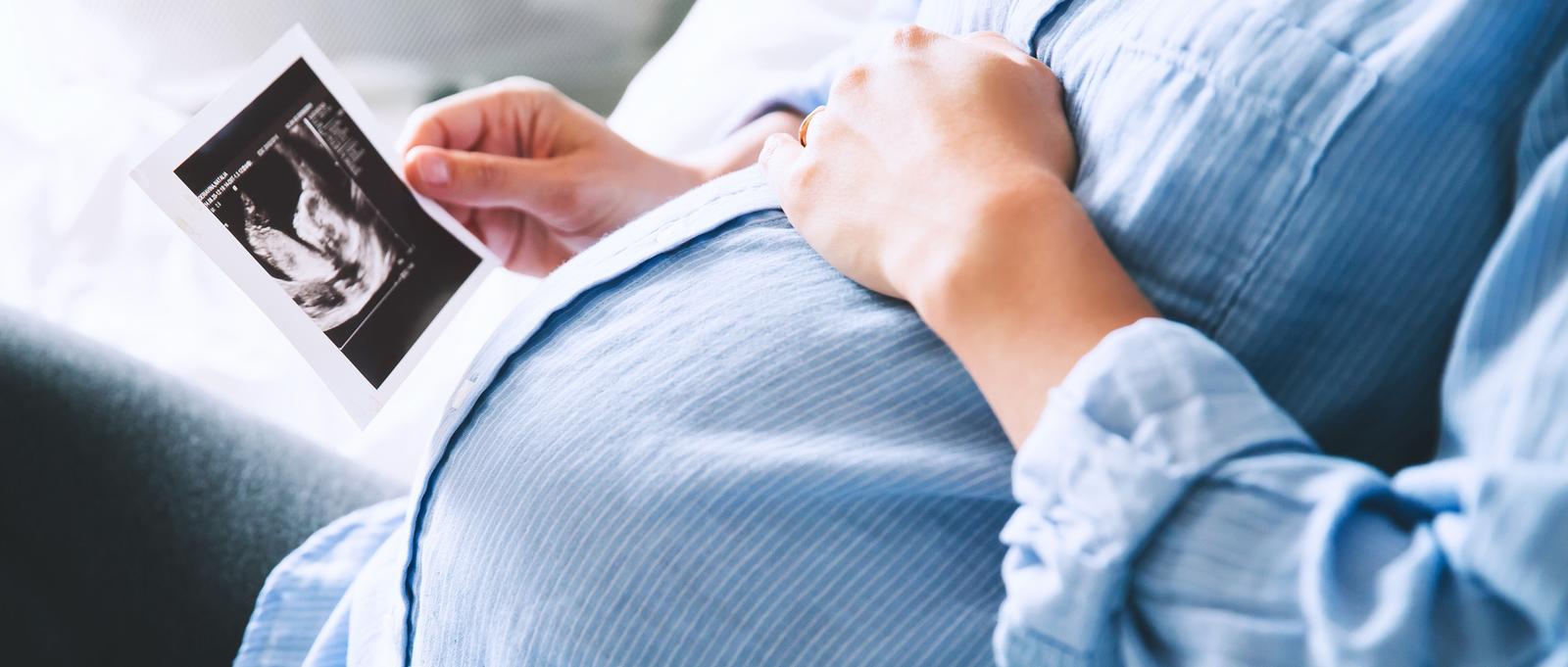
Can you drink coffee when you are pregnant?
Peer reviewed by Dr Krishna Vakharia, MRCGPAuthored by Lydia SmithOriginally published 1 Nov 2022
- HerunterladenHerunterladen
- Teilen Sie
Teilen Sie
Finding out you're pregnant can lead to a range of emotions, from excitement and joy to anxiety and fear. There is a lot to wrap your head around, including changes to your diet. Although most foods and drinks are safe to have during pregnancy, there are certain things to avoid or not have too much of - like overdoing it on caffeine.
In diesem Artikel:
Many of us rely on coffee and the effects of caffiene to get us through the day, but limiting how much caffeine you have during pregnancy is important because high levels have been linked to pregnancy complications. Caffeine can cross the placenta and enter the bloodstream of the fetus1. Additionally, the body breaks down caffeine more slowly during pregnancy.
The current guidelines state that pregnant women should have fewer than 200 milligrams - around two cups - of instant coffee a day.
"Caffeine, like many things found in a normal diet, can be harmful in large amounts during pregnancy," says midwifery manager Amina Hatia from the pregnancy charity Tommy's. "Babies can't process caffeine like adults so when large amounts of caffeine cross through the placenta to the baby, it can be dangerous."
Lesen Sie unten weiter
Why is coffee bad in pregnancy?
Caffeine may cause blood vessels in the uterus and placenta to constrict, which may reduce the blood supply to the fetus and lead to a lower birth weights2. Studies have also suggested caffeine may disrupt fetal stress hormones, putting infants at risk of rapid weight gain after birth and for later life obesity, heart disease and diabetes2. Caffeine intake can also raise a also been linked to risk of miscarriage3 and stillbirth.
A 2020 study4 carried out by the pregnancy charity Tommy's suggests that the risk from caffeine increases the more you have. The research found a 27% increase in stillbirth risk for each 100 mg of caffeine consumed.
"While official guidance remains at 200 mg caffeine per day, this study suggests that limits considered 'completely safe' in current national guidelines should be reconsidered," says Hatia."While the risk of stillbirth remains low, we suggest you reduce your intake as much as possible."
The research also showed consuming energy drinks led to a higher risk of stillbirth5. However, the researchers weren't able to establish whether chemicals like taurine were the reason why energy drinks are dangerous in pregnancy, so further studies are needed.
How much coffee can you drink when pregnant?
Although more than half of women (54%) cut down on caffeine consumption during pregnancy, one in 20 increased their caffeine intake when expecting, according to research by Tommy's.
One of the problems is that it can be difficult to work out how much caffeine is in your cup of coffee; here is a rough guide to how much caffeine is in some poplular food and drinks:
Mug of filter coffee = 140 mg.
Mug of instant coffee = 100 mg.
250 ml can of energy drink = at least 80 mg.
Mug of regular tea = 75 mg.
Mug of green tea = 75 mg.
Can of standard cola = 40 mg.
50 g bar of plain dark chocolate = 25 mg
50 g bar of milk cholcolate = 10 mg
"It's important not to worry too much, as the risk is still very low," says Hatia. "It should also be remembered that pregnancy loss is very rarely caused by anything you did or did not do. Caffeine is just one part of pregnancy health, alongside eating a balanced diet, keeping physically active, going to antenatal care appointments and seeking help for unusual symptoms.
"Women and pregnant people might worry if they occasionally go over the suggested caffeine limit, especially when it's not always clear how much caffeine is in a particular food or drink," she adds. "Caffeine intake can be really confusing, and milligrams don't mean a lot to us, so it can be hard to keep track. We developed our Tommy's caffeine calculator for this reason - to help give some clear guidance on what 200 mg looks like in a daily diet, so you can avoid unnecessary worry."
Patientenauswahlen für Ernährung und Lebensstil während der Schwangerschaft

Schwangerschaft
Eine Mutterschafts-Kapselgarderobe mit wenig Geld
Der Kauf von Kleidung für die Schwangerschaft kann entmutigend sein, vor allem, wenn man sich über die Kosten Gedanken macht. Aber der Aufbau einer Umstandsgarderobe muss nicht teuer sein, sondern kann sogar Spaß machen.
von Danny Chadburn

Schwangerschaft
Schwangerschaft und körperliche Aktivität
Es ist wichtig, sich während der Schwangerschaft regelmäßig körperlich zu betätigen, da dies Teil einer gesunden Lebensweise ist. In den meisten Fällen ist moderate körperliche Aktivität unbedenklich.
von Dr. Mary Harding, MRCGP
Lesen Sie unten weiter
Can you drink decaf coffee while pregnant?
There are no official guidelines in the UK on drinking decaf coffee or tea in pregnancy. The lower levels of caffeine in decaf coffee mean it is likely to be safe to drink in moderation. However, it is important to note that there are no known safe levels of caffeine in pregnancy.
Although some studies5 have found an association between decaffeinated drinks and pregnancy complications, researchers have noted that this may be due to bias in the research. Overall, drinking a couple of cups of decaf coffee during pregnancy should be safe.
Weitere Lektüre
Artikel Geschichte
Die Informationen auf dieser Seite wurden von qualifizierten Klinikern geprüft.
1 Nov 2022 | Originally published
Verfasst von:
Lydia SmithPeer-Review durch
Dr. Krishna Vakharia, MRCGP

Fragen, teilen, verbinden.
Stöbern Sie in Diskussionen, stellen Sie Fragen, und tauschen Sie Erfahrungen zu Hunderten von Gesundheitsthemen aus.

Fühlen Sie sich unwohl?
Beurteilen Sie Ihre Symptome online und kostenlos